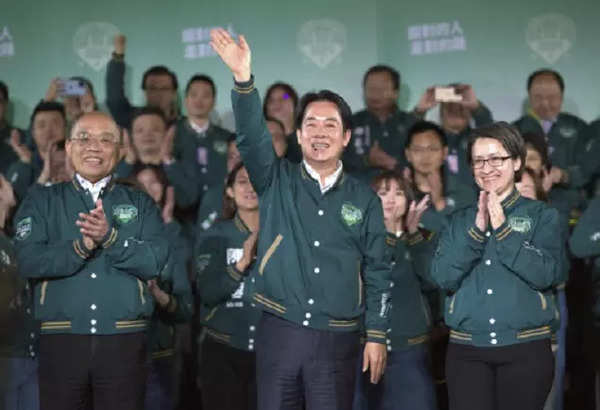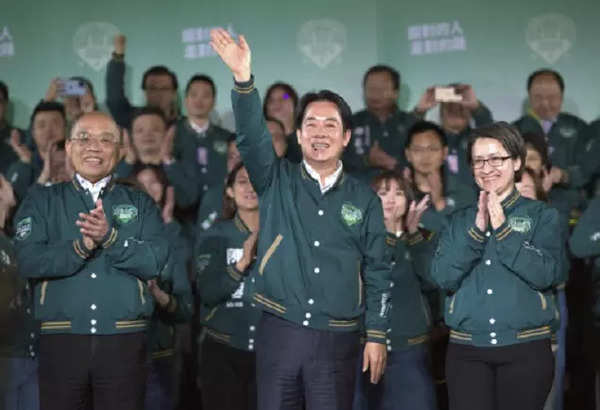
[ad_1]
In the recent Taiwan presidential election, the Democratic Progressive Party’s vote share dropped significantly. Therefore, can this really be called a decisive mandate for the governing party?
The decrease in the number of votes does not affect the validity and legality of the President’s election because from essentially two-party competition in the past to the three-party competition this time, the proportion of votes decreased for DPP of course, and this will be the same case in future. President-elect Lai Ching-te from the DPP will have no problem in implementing government policy and conducting affairs. Lai still leads the establishment of the cabinet, and the cabinet is responsible to the national legislature. But it may not be easy to gain consensus from the opposition parties on major issues, such as arms purchases and nuclear power.
The DPP also lost its majority in the legislative yuan (national assembly). Will this not hamper President-elect Lai?
The structure of the legislative yuan is relatively complex. If the DPP proposes controversial policies, it will probably not be passed, such as on the issue of unification and independence. This also eliminates doubts of the US and China. Although no party has a majority, many policies still need to be implemented, and implementation must rely on more compromise and communication. If there is a consensus, the items will be passed immediately. If there is no consensus, more communication will be required. If there is a dispute, the matter will be temporarily stopped.

How big an impact has the third party, Taiwan People’s Party, had on Taiwanese politics?
In the next four years, the Taiwan People’s Party will play a key role, but how to expand and gain more public support is TPP’s goal. As long as it is the trend of public opinion, party leader Ko Wen-je will follow it, whether it is a blue (Kuomintang) or green (DPP) policy. However, if it fails in the next election, or is partially absorbed into the two major parties, TPP may lose its voter-base.
China brands President-elect Lai as a separatist. Will Chinese military pressure against Taiwan increase over the next four years?
Judging from the threats of China’s People’s Liberation Army to intervene before the election, for the sake of saving China’s face, China will put forward prerequisites and conditions. It hopes that Lai Ching-te will recognise ‘One China’ or the 1992 Consensus before taking office. But Lai will not do it, which then requires China to take tough measures. But China will avoid escalation because the US requires China to play it cool vis-à-vis Taiwan. If Chinese military manoeuvres around Taiwan happen, it won’t be larger than the exercises in 2022 or the 1995 and 1996 drills.
Nauru switched diplomatic recognition from Taiwan to China just days after the polls. Is Taiwan worried about its dwindling diplomatic allies?
For Taiwan, 13 diplomatic allies are the same as 10 diplomatic allies, especially when you consider some of these countries have relatively less international influence. But the Vatican in Europe and Eswatini in Africa are very important. That is the difference between absence and presence. The people of Taiwan no longer care about these diplomatic allies. Because of the internationalisation of the Taiwan issue, the world’s major powers are very concerned about Taiwan and have very close substantive diplomacy. Even Germany and the Philippines congratulated Taiwan’s new President. Substantial exchanges with major non-diplomatic allies are more important than maintaining formal diplomatic relations with smaller countries.
Due you think China will launch an invasion of Taiwan in the near future?
There are three timings for China to invade Taiwan:
a. The US decides to abandon Taiwan: It is currently impossible, and US attaches great importance to Taiwan’s interests.
b. China believes that its military capabilities can defeat the intervention of the US, Japan, and Australia: China’s military capabilities will still lag far behind those of the US in the next 3-5 years.
c. China believes that Taiwan’s defence capabilities are too weak and that it can easily defeat Taiwan.
The above three timings are currently impossible. Unless Taiwan declares de jure independence, China will not invade Taiwan within the next 3-5 years.
US President Biden said he doesn’t support Taiwan independence after having previously indicated that US would defend Taiwan in case of a Chinese attack. How strong is US commitment to Taiwan today?
The policy of the US is to oppose any side’s unilateral change of the status quo. If China attacks Taiwan without reason, the US will inevitably intervene. This is why Biden said that he will not support Taiwan’s independence but that the US will defend Taiwan. But the US maintaining strategic ambiguity may cause China to test the US’s support for Taiwan. The US is now fully assisting Taiwan’s defence to establish deterrence. With the support of the US Taiwan Relations Act and Congress, if Taiwan does not provoke China AND China invades, the US will firmly support Taiwan.
What will be Lai’s overall policy approach?
Lai’s foreign policy will be as follows
a. Continue President Tsai Ing-wen’s diplomatic line and maintain the status quo to avoid giving China an excuse to invade;
b. Strengthen cooperation with the US and democratic alliance countries to build deterrent power;
c. Improve Taiwan’s democratic system and link it to the values of Western democracy and freedom
d. Improve the high-tech industrial chain and become an important partner for the scientific and technological development of various countries.
[ad_2]
Source link